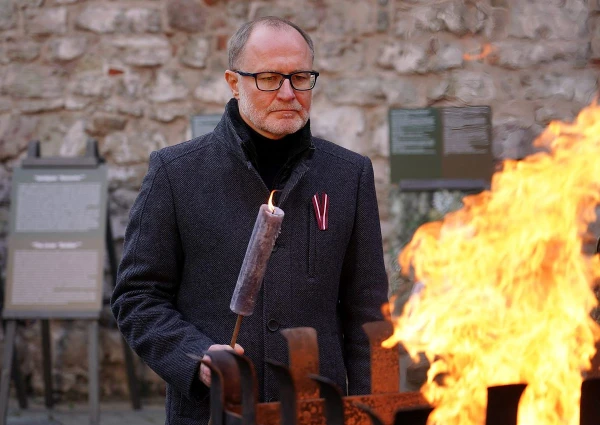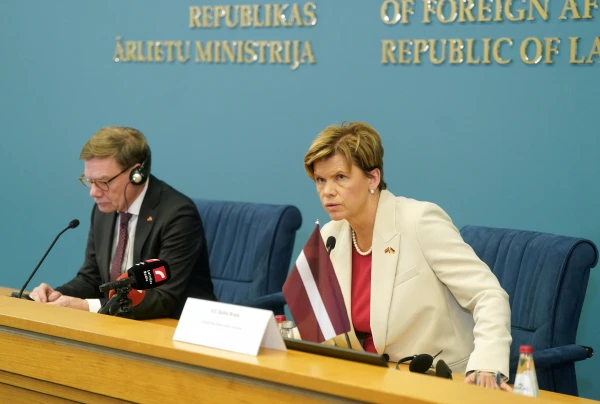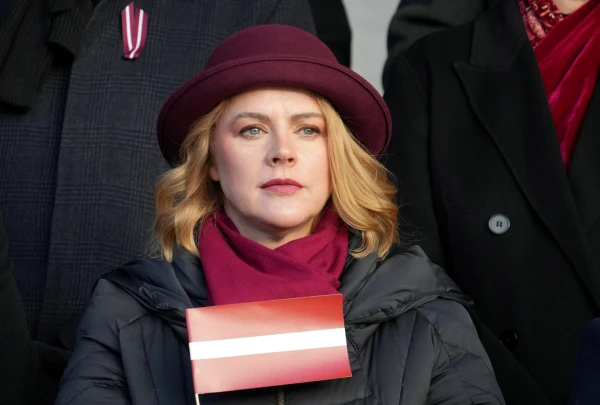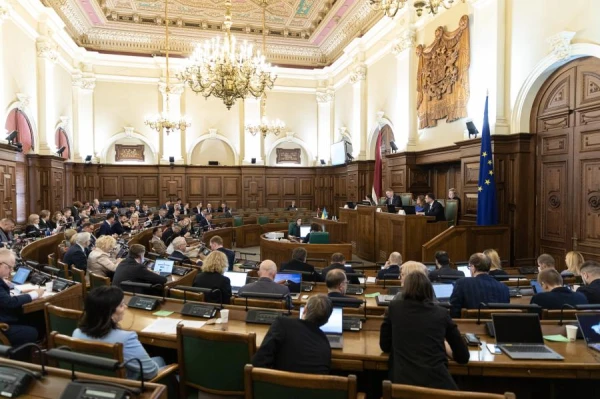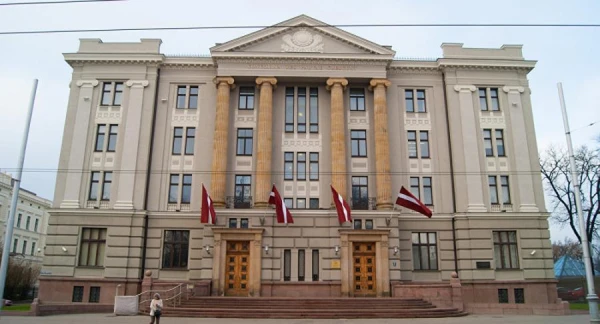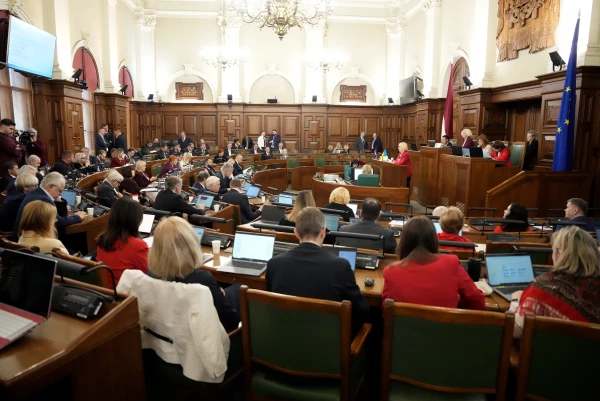
Non-governmental organizations (NGOs) were given the opportunity to express their opinion on the issue of denouncing the Istanbul Convention, stated Inara Murniece (National Alliance), the chairwoman of the Seimas Foreign Affairs Commission, in an interview for the program "900 Seconds" (TV3), accusing NGOs of manipulating facts, LETA reports.
According to her, the issue was discussed at five commission meetings, and one of them was specifically dedicated to NGOs to discuss their position.
In the deputy's opinion, there was an opportunity to ask questions to the deputies, and a dialogue took place. "But this dialogue cannot be endless. It must be structured," said Murniece.
"Please do not manipulate the facts," she urged.
Commenting on the vote that took place on Thursday regarding the exit from the Istanbul Convention, Murniece expressed confidence that processes of disintegration have begun in the government, noticeable to the entire public.
According to her, the Union of Greens and Farmers (UGF), which supported the exit from the convention, was allegedly forced to support its adoption in order to be included in this government, using "arm-twisting techniques."
When asked whether the Istanbul Convention is being used as a tool for "political games," she stated that two aspects should be separated — the crisis in the government and measures against violence without ideological coloring.
When asked to comment on how the Seimas' decision can be explained internationally, the head of the foreign affairs commission began to explain what the declaration attached to the convention entails, and that some countries have already stated that they will not take it into account. She also emphasized that the Action Plan against Violence remains in effect and that "the international legal framework in Latvia remains in force."
As previously reported, on Thursday, with the votes of the opposition and the Union of Greens and Farmers, the Seimas adopted a law on Latvia's exit from the Council of Europe Convention on Preventing and Combating Violence Against Women and Domestic Violence, also known as the Istanbul Convention.
The Latvian Civil Alliance (LCA) condemned the actions of the Seimas Foreign Affairs Commission, led by Murniece, which voted on Wednesday to deny NGO representatives the right to speak at the meeting. When representatives of the Council of Creative Unions of Latvia and the Marta Center requested the floor, Murniece and opposition deputies opposed this. The question was put to a vote, and the organizations were not given the floor.
After the vote in the Seimas, the Women's Rights Protection Center "Marta" and several other NGOs sent a letter to the President of Latvia, Edgars Rinkēvičs, urging him to return the law on exiting the convention for reconsideration in parliament.
The organizations emphasize that the convention is one of the most important international instruments in the field of human rights, protecting women, children, and other people at risk of violence. The convention obligates the state not only to punish the guilty but also to develop preventive mechanisms, educate society, assist victims, and strengthen the capacity of law enforcement agencies to prevent violence.
NGOs also note that the consideration of the bill took place in haste, without full public, expert, and inter-agency discussion. Ministries, including the Ministry of Foreign Affairs, were not given the opportunity to express their opinions at the foreign affairs commission meetings.
The authors of the letter emphasize that misinformation is spreading in the public sphere regarding the compliance of certain articles of the convention with the Constitution and other laws.
Considering that the convention has been ratified by 39 member states of the Council of Europe, the organizations believe that Latvia's exit will seriously damage the country's international reputation and jeopardize Latvia's image as a European, rule-of-law state that supports human rights and gender equality.
The letter was signed by more than 2000 people.
After the parliamentary majority's decision, the international human rights organization Amnesty International also issued a statement. The organization's senior women's rights specialist, Monika Costa Riba, stated that "Latvia's exit from the Istanbul Convention will be a devastating blow to the protection and rights of women and girls in the country, as well as to all those facing domestic violence, and will send a dangerous signal to abusers that they can use and kill women and girls with impunity."
The bill to exit the convention was presented by the opposition party "Latvia First" (LPM), and it was supported by other opposition parties — "National Alliance," "United List," and "For Stability," as well as representatives of the ruling coalition from the UGF. The coalition parties "New Unity" (NE) and "Progressives" opposed it.
Fifty-six deputies voted for the exit from the convention, 32 against (representatives of NE and "Progressives"), and two — Igor Raiev and Didzis Shmits — abstained. The discussion of the bill lasted more than 13 hours.
The law was adopted urgently; however, this procedure was not approved by a qualified majority of 2/3 of the votes, which gives the president the opportunity not to proclaim the law and return it for reconsideration. Opponents of the decision are also considering other ways to suspend or delay the law's entry into force — appealing to the Constitutional Court or urging the president to suspend the proclamation of the law in order to collect signatures for a referendum.
President Edgars Rinkēvičs has so far been extremely cautious in expressing his views on the denunciation of the convention, not supporting either side. According to him, he seeks to maintain neutrality in order not to participate in the electoral struggle. Rinkēvičs suggested that after the Seimas' decision, the issue might end up "on his desk," and then he would consider it comprehensively and make a decision.
In Latvia, the Council of Europe Convention on Preventing and Combating Violence Against Women and Domestic Violence, the so-called Istanbul Convention, came into force on May 1 of last year. This international treaty stipulates that participating states must develop a coordinated policy for more effective protection of women from all forms of violence, as well as women and men from domestic violence. In particular, states should ensure comprehensive assistance and protection for victims, the availability of crisis centers, a 24-hour hotline, specialized support centers for victims of sexual violence, as well as protect and support children who have witnessed violence.
